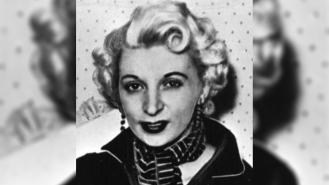
Famous British miscarriages of justice
The notion of ‘the punishment fitting the crime’ has always caused fierce debate in the UK. To this day, public anger over ‘soft sentences’ is an ongoing conversation whenever a high-profile criminal case goes through sentencing. While we argue over whether a given number of years imprisonment is fitting for any given crime, it’s sometimes easy to overlook the fact that Britain has been the scene of many v alongside a long and gruesome history of capital punishment.
These state-sanctioned killings only ended in 1964 with the executions of Peter Anthony Allen and Gwynne Owen Evans - and the death sentence itself was still in place for acts of treason as recently as 1998.
Alongside the ethical debate on the brutality of capital punishment, another major contributor to the demise of capital punishment in the UK were several high-profile miscarriages of justice that saw innocents accused and sentenced for crimes they didn’t commit. These events crystallized the arguments of those who wanted an end to the death sentence and have gone down in history as a stain on the history of the British justice system.
Timothy Evans
Timothy Evans was sentenced to death by hanging on 9th March 1950. Despite his death occurring over 70 years ago, Evans’ name lingers in the collective memory because he was attached to the case of infamous serial killer John Christie, who murdered at least eight women. The murders took place at his home in Notting Hill, 8 Rillington Place - an address that has achieved notoriety, not least because a film was made of that name detailing Christie’s wicked crimes. As Christie’s unfortunate neighbour, Evans found himself caught up in the grisly events.
Evans was tried and convicted for the murder of his wife and daughter, Beryl and Geraldine and had accused Christie of the murders, but to little avail. The case against Evans was largely based on Christie’s evidence which ultimately saw his demise. After a public inquiry, Evans was pardoned in 1966 based on the findings of that investigation.
Derek Bentley
Possibly even more controversial than Evans’ death at the hands of the authorities was the case of Derek Bentley, a 19-year-old man who was executed for the shooting of Police Constable Sidney Miles in 1953. In the midst of a burglary, Bentley - who had learning difficulties and a mental age of 11 - was stopped with his accomplice, 16-year-old Christopher Craig.
Craig was too young to be sentenced to death, so the hanging of Bentley hinged around the fact the burglary and subsequent shooting was a ‘joint enterprise’ between the two.
The entire case against Bentley pivoted on the phrase, ‘Let him have it, Chris’ which Bentley is said to have uttered moments before the shooting. The ambiguity of those words - which could have meant either ‘give him the gun’ or ‘shoot him’ - led to the jury deciding it was a call to murder, sealing Bentley’s fate. He was eventually pardoned posthumously in 1998.
Edith Thompson
Another presumed ‘murder by incitement’, the case against Edith Thomspon is largely considered to have been weak, even before the trial began. Trapped in an unhappy marriage to shipping clerk Percy Thompson, Edith embarked on a love affair with a younger man, Freddy Bywaters. After a period of courtship, it was Bywaters who fatally stabbed Percy Thompson as he walked home from a theatre one night in October 1922, accompanied by his wife.
The prosecution of Edith was based on extracts from her letters to Bywaters, who was 18 years of age to her 27. The age gap was considered outrageous at the time and was used to point to her guilt alongside mention in her letters that she had tried to ‘poison’ her husband, which was likely a flight of fancy.
There was also a segment in which she opined over a woman who had lost three husbands where she ‘can’t even lose one’. These details were used to point out her lack of moral standing. When Bywaters ultimately leapt from a bush and murdered Percy Thomson, Edith is said to have begged him not to. This detail had little effect on the jury, who found her guilty and subsequently saw her sentenced to death in January 1923.
Stefan Kiszko
The case of Stefan Kiszko was historically too recent to result in the death sentence, but his experience serves as a powerful reminder of how miscarriages of justice can be just as devastating even if wrongful execution is not the outcome. Stefan Kiszko was tried for the sexual assault and stabbing of Lesley Molseed in 1976.
With a mental age of 12, Kiszco fitted the profile of a killer according to the police, who based this contention mainly on an accusation against him of indecent assault made to police three days before the murder by a group of girls. Having been told he could ‘go home’ if he confessed to the murder, instead Kiszco was sent to prison for 16 years where he was routinely bullied, as is liable to happen to jailed sex offenders.
Forensic evidence ultimately freed Kiszco, whose mother had campaigned for a retrial throughout his incarceration. His release was based on the fact he was infertile whilst semen found at the scene was found to contain sperm - proving that he could not have been the murderer. On top of this, the three girls who made the indecent assault accusation admitted that they had lied.
Kiszco was released in February 1992 and eventually, the real murderer - Ronald Castree - was found, tried and imprisoned for the crime. If the sequence of events weren’t tragic enough, Kiszco only tasted freedom for a matter of months. Mentally broken, in 1993 he suffered a massive heart attack and died after only a year of liberty with his mother passing away just a few short months later.
While Kiszco’s case is unquestionably tragic, at least he lived to see his redemption in the eyes of the public and the law - even if for a miserably short amount of time. For those executed before the truth came out, the same unfortunately can’t be said.
Read more:
The Stockwell 6: How police corruption led to a terrible miscarriage of justice












